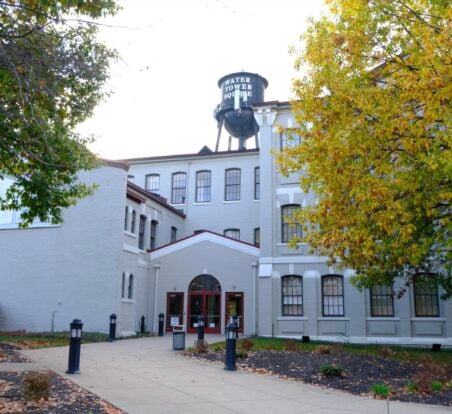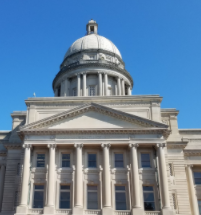One year ago, my wife was desperately driving me to an emergency room after an artery in my leg burst, a rare and accidental consequence of an outpatient procedure I had a few days earlier.
The result was a large, dangerous, and painful hematoma, basically an oval of blood the size of a small football expanding in my upper right leg. My wife’s quick thinking using horse bandage kept the hematoma from growing any larger and got me to the ER.
Once the medical professionals there understood what they were dealing with, I was flown by helicopter to a larger hospital for surgery.

Thankfully, all went well, and a week later I was recovering at home.
The quality of care I received was amazing. From the ER to the pilot and flight nurse to the doctors, nurses, and physical therapists at the hospital, I could not have asked for a better group of health professionals. Today, looking back, I wonder whether that same standard of care will be as readily available in the future.
My Dad used to have an odd saying that he would bring up once in a while. He would say that someone would ‘cut off their nose just to spite their face’ which was his way of saying they were being stupid. Whatever they were doing, it just didn’t make any sense.
Today we aren’t just cutting off our nose. We are cutting out our brains. We are in the midst of a national lobotomy.
Here’s how you train a health professional: they go to college. They take biology, chemistry, physics, math, and many other courses. Many of those universities provide cutting-edge education because they are also conducting research, much of which has, until recently, been funded by the federal government.
Grants from the National Institutes of Health (NIH) and the National Science Foundation (NSF), among others, have kept our universities strong and helped them train those very same professionals that helped save my life, and maybe yours too. Many universities rely on federal funding—which they obtain competitively—to help create the wonderful doctors, nurses, and other health care professionals that we often take for granted.
When we cut that funding, it’s not just research that suffers; it’s education as well. Budgets are cut, faculty are stretched thin, class sizes increase, students get less interaction with professors, and they aren’t exposed to the newest scientific techniques, because the professors can’t afford to learn and use them themselves. Which means that some of these students aren’t as prepared to enter nursing programs or medical school and save lives or just help us solve our health problems.
It’s also not just the health professions that suffer. Less research funding affects our teacher education, engineering, wildlife, chemistry, agriculture and many other programs whose students are affected by federal funding. The entire university is affected when such funding is cut, particularly in such a sudden and draconian manner.
Every college student takes science and math courses, some more than others. Do we want our kids trained by the best teachers? Do we want them and us cared for by the best nurses and doctors? Do we want our fisheries and wildlife conserved and managed by the best professionals? Do we want our bridges and buildings and vehicles designed by the best trained engineers?
Or are we satisfied with half the brain we had just a few months ago in an ever more complex and technological world? It sounds to me like a recipe to lose the science and technology race that we are inevitably in with China and other countries.
We can’t have it both ways. Any business person knows that for a business to grow, you have to invest capital. The previous investments of federal funding have multiplied in benefits, including creating our current quality of life. When you cut investments, the business can’t remain competitive, and it will to start to fold —maybe even go bankrupt. Our national brain seems to be on this very path.
On a local level, grants stimulate the economy. They pay for student research positions, purchase supplies and equipment, and yes, some of it helps with other university activities, through “indirect costs.” Some universities have bloated their indirect cost rates, which is the funding they get for attracting and supporting world-renowned researchers. But most universities have not, and the across-the-board proposed cuts to indirect costs, when combined with drastic budget cuts to NIH and NSF, will significantly wound universities throughout the country.
Such cuts hit rural communities particularly hard, because universities have already started closing branch campuses. Penn State just decided to close seven of its 19 campuses, mainly in rural areas. I expect more universities will be doing the same.
Nationwide, these economic impacts add up, with about 50% of America’s economic growth linked to federal research investments. For example, researchers have documented that the $37.8 billion dollars spent in NIH grants each year creates over 400,000 jobs across the country, and that every $100 million in NIH funding leads to 76 patents which attract almost $600 million dollars in new research and development money from the private sector. Between 2015 and 2019, 53 university research spin-off companies contributed more than $700 million to the U.S. economy. To put a pin on it, every dollar of NIH and NSF grant funding yields over two dollars in economic gains.
Any broker (anyone!) would bend over backwards to buy that stock, but the current administration has chosen to cut off research investment. Does this sound like smart investing to anyone? Is this a viable recipe for making America great?
I’m thankful for the wonderful teachers I’ve had and that made me who I am, for the wildlife professionals that have helped conserve our natural resources for me to enjoy, for the engineers that have created safe buildings and vehicles for me and my family, and for the health professionals that saved my life a year ago and have kept me vertical and active ever since. I’m also thankful that all of them had the brilliant training of our universities, backed by federal research dollars, which remains one of the wisest uses of our taxes.
I worry that if things continue the way they are, we will look back on the glory days of American science. People will start to wonder why so many more people are getting sick and dying from disease, but it won’t take long to figure out what happened. China will pass us by in our continued quest for science and technological supremacy. With the development of alternative energy technologies, responding to climate change, the emergence of new diseases, and the continued threat of nuclear, chemical, and biological warfare, now is the time to invest more in scientific research, not less.
I believe the vast majority of Americans would agree that we all want our country to be great, to be that shining light for other countries to follow. To keep America great, or even make it better, we need to keep it smart.
I don’t want America’s science, engineering, and health professionals to take a back seat to anyone. It’s time to stop the lobotomy and put our brains back into place. If we do, maybe our teachers will be prepared to teach our kids, our engineers will be prepared to create safe buildings and cars, our health professionals will be prepared to save our lives, and our country will be thinking with a full brain again.
Dr. Howard Whiteman is the Commonwealth Endowed Chair of Environmental Studies and professor in the Department of Biological Sciences at Murray State University.

















